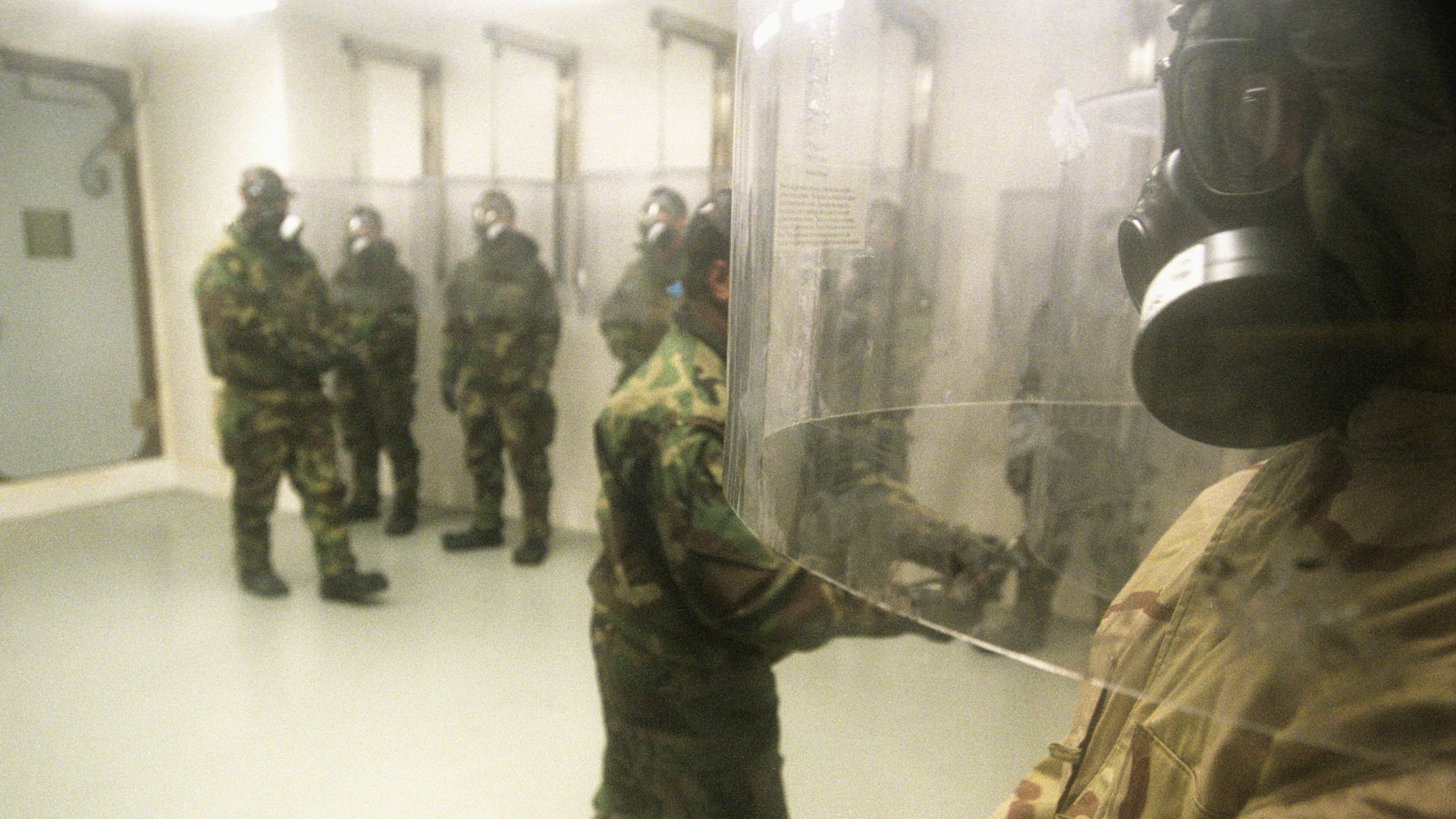Updated Mar 16, 2018 - World
Expert VoicesRussian nerve agent from Skripal attack a deadly game-changer
Add Axios as your preferred source to
see more of our stories on Google.

U.S. troops participating in sarin gas and VX nerve agent training. The toxin used in the Salisbury, U.K., attack is up to 10 times more potent than VX. Photo: Leif Skoogfors / Corbis via Getty Images
